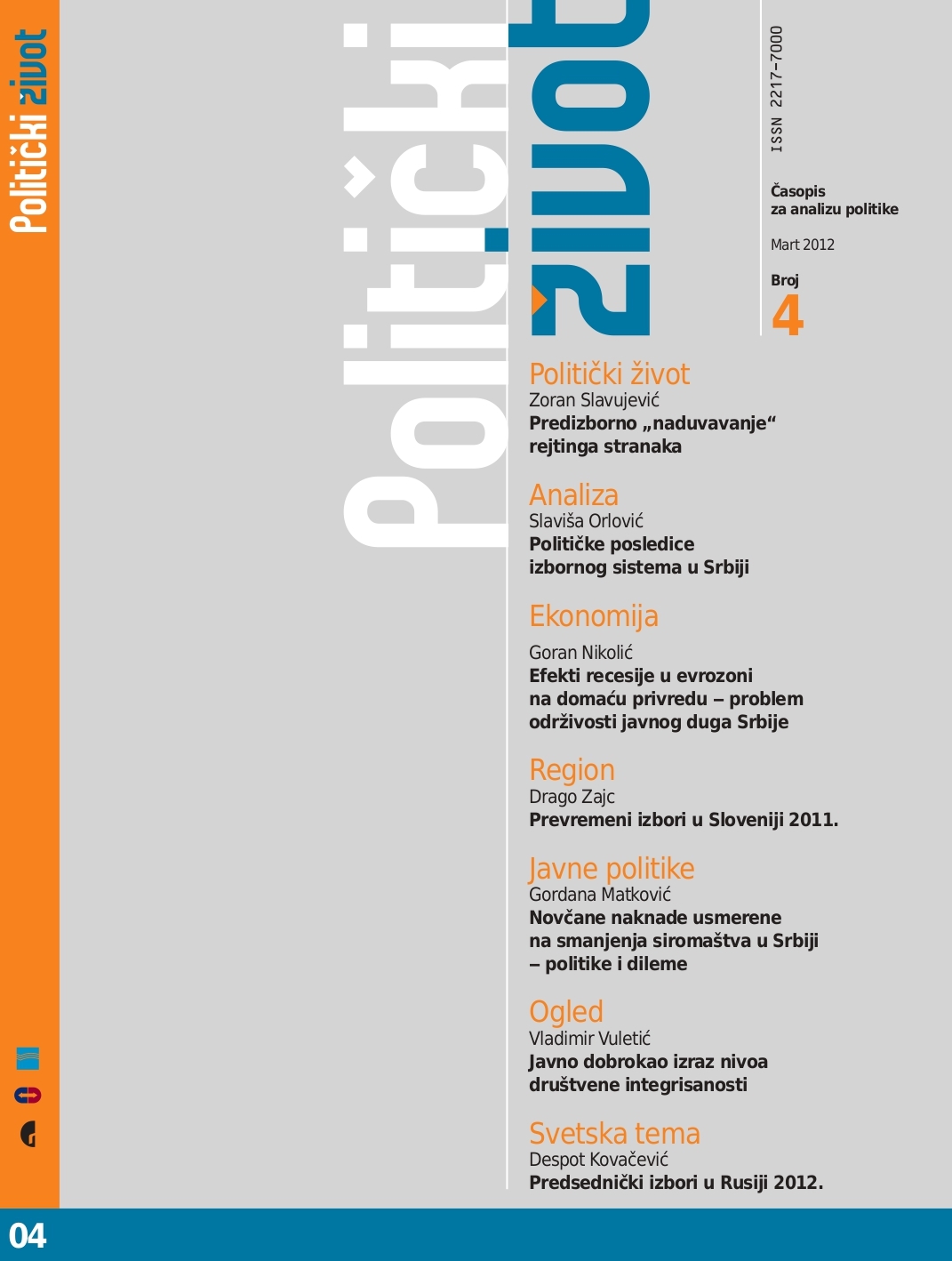Uticaj organizacija civilnog društva na demokratsku tranziciju i konsolidaciju u Republici Makedoniji
Influence of civil society organisations on democratic transition and consolidation in Republic of Macedonia
Author(s): Nenad MarkovićSubject(s): Civil Society, Government/Political systems
Published by: Fakultet političkih nauka Univerziteta u Beogradu
Keywords: Democratic transition; democratic consolidation; civil society; civil society organizations; Republic of Macedonia; NGO; trade unions; media; religious organizations; influence;
Summary/Abstract: The processes of democratic transition and consolidation are followed by a significant transformational change in all areas of society. One of the crucial areas of social transformation is the emerging civil society (especially its organized forms), that as a concept is unknown until the very regime change. Organized forms of civil society, though new in the societal ambient, should represent a positive factor of democratic transitions and stabilization of democratic values. The Republic of Macedonia is one of the transitional societies where civil society emerged as a paradigm for a democratic mechanism that should aid society in the incremental change towards democracy. That is why it is crucial to answer whether and how the organization of civil society influenced the processes of democratic transition and consolidation. In order to do that it is vital to examine factors such as political culture, social capital and public spirit, before going into evaluation of the four largest organized forms of civil society: non-governmental organizations, trade unions, religious organizations and media.
Journal: Politički život
- Issue Year: 2012
- Issue No: 4
- Page Range: 67-80
- Page Count: 14
- Language: Serbian

